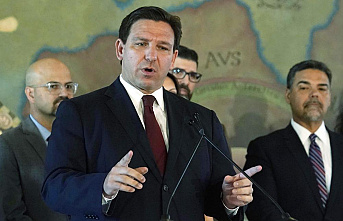U.S. safety regulators have received complaints from more than 750 Tesla owners that their partially-automated driving systems suddenly stop on roads for no apparent reason.
In a detailed information request to Tesla, the National Highway Traffic Safety Administration disclosed the number. It was posted on Friday by the agency's website.
The automaker is asked to provide all reports from consumers and the field about false braking. It also requests information on property damage claims, deaths, and injuries. It also requests information about whether automatic emergency brake systems and full self driving were in use at the time of any incident.
After receiving 354 complaints, the agency started investigating phantom braking issues in Tesla's Models 3 & Y last February. The probe includes approximately 416,000 vehicles between the 2021-2022 model years. The agency stated that it has not received any reports of injuries or crashes in February.
Tesla has until June 20th to respond to the information request. However, the letter states that Tesla can request an extension.
Tesla Inc. shares plunged by more than 9% on Friday
Early Friday, a message was left requesting comment from Tesla
The agency opened the probe and stated that it was investigating vehicles with automated driver-assist features like adaptive cruise control or "Autopilot," which allow them to automatically brake and steer within their lanes.
The agency stated that "Complainants have reported that rapid deceleration can occur at any time and without warning"
Many owners complained that they were afraid of a rear-end collision on a freeway.
NHTSA requests information such as the speed at which the cars started to brake, their final speeds, and the average deceleration. NHTSA also requests information about whether automated systems detected a target object and whether Tesla has video documentation of the braking incidents.
The agency is seeking information about warranty claims for phantom brake, including names of the owners and details on repairs made. It is also looking for information about Tesla's sensors and any testing or investigations into the brake problems.
The letter concerns Tesla's testing of automated systems for detecting metal bridges, curves in s-shaped, oncoming and crossing traffic, as well as different sizes of vehicles, including large trucks. The agency is also interested in information about how cameras handle reflections, shadows and glare due to heavy rain or snow.
Tesla is asked by the agency to describe its assessment of the "alleged defect in the automated system," including the causes and failures, as well as the risks to motor vehicle safety. The agency asks Tesla to detail the warnings that Tesla and other people inside the vehicle received about the defect or the malfunctioning subject component.
This probe is just one of a series of enforcement actions by the agency, which also includes Autopilot and Full Self-Driving software. Despite the names, neither feature is allowed to drive the vehicles without supervision.







